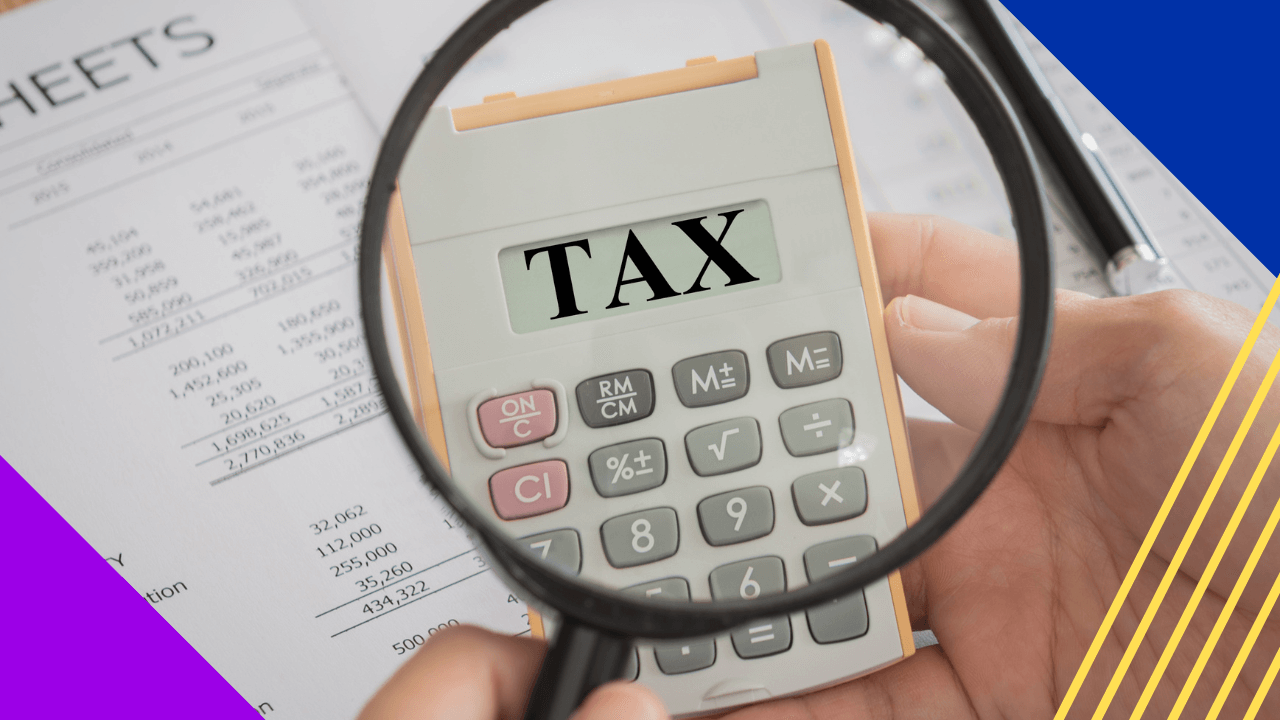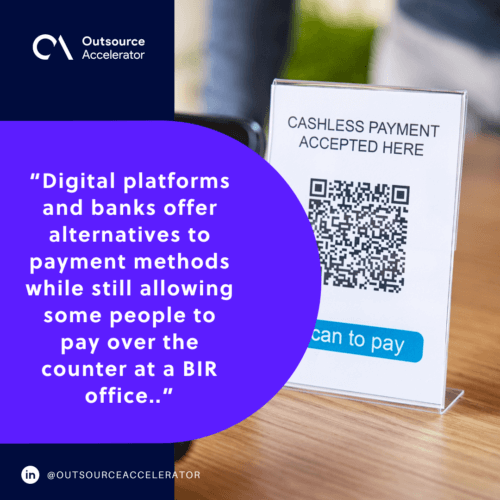How digitalization improves tax compliance

This article is a submission by D&V Philippines. D&V Philippines has years of experience in the accounting and finance industry. This third-party services company can generate the financial reports you need to make real-time financial decisions.
Taxes are one source of government revenue. Compliance is a must for all companies so they won’t incur penalties and fines that can negatively affect their business.
The Philippines has taken a slow but steady approach to digitalization. Before, Filipino taxpayers had to queue for hours, or in some cases, the whole day, to pay their taxes or register their businesses.
The government has taken measures to improve tax compliance, simplify the process, and make paying and registering more convenient. One of them is the implementation of Republic Act No. 11976 or the Ease of Paying Taxes Act.
What is the Ease of Paying Taxes Act (EOPT)?
The law took effect on January 22, 2024, after Pres. Ferdinand “Bongbong” Marcos Jr. signed it on January 5, 2024.
Some of the law’s provisions include:
- Waived P500 taxpayer annual registration fee.
- Identifies taxpayer categories into micro, small, medium, and large.
- Taxpayers have the option to file tax returns and payments online or at an agent bank. They can still manually pay at a Bureau of Internal Revenue (BIR) office.
- Taxpayers can register with their Revenue District Office (RDO) in person or electronically.
- The BIR has reduced the requirement of keeping books of accounts and similar documents from 10 to 5 years.
- Micro and small taxpayers are given special concessions, such as a maximum of two pages for income tax returns and lower penalties.
- Refund claims for Value-Added Tax (VAT) follow a classification of low, medium, and high risk.
The provisions mentioned are just a few from which all businesses can benefit. In line with the national government’s goals, the BIR will establish a digitalization plan to streamline processes, reduce requirements, and simplify payments and registrations to improve tax compliance.
Why is digitalization important for tax compliance?
Digital payments have benefited many countries because they make it easier to collect taxes and carry out policies.
Better collection rates boost government revenues, giving them more resources to improve their services and fund infrastructure projects. The simpler filing and registration processes are also a boon for individual taxpayers and companies.

Tax fraud prevention
Manual transactions increase the possibility of fraudulent activities. On the other hand, when you store data and documents on a digital platform, it’ll be more difficult to manipulate them.
Online platforms come with several layers of security and encryption. They also have monitoring features that allow users to track all transactions and activities.
Government agencies can identify atypical activities or data manipulation that took place, enabling them to prevent and detect fraud.
Better information management
Government agencies process millions of data when tax season comes.
Digital transformation enables them to improve their data management while reducing the risk of loss, fraud, and theft. It also makes it easier and faster for their teams to process all the transactions that take place.
Digitalization allows agencies to release licenses, permits, invoices, forms, receipts, and other documents that companies might need to comply with the law.
Higher tax compliance rate
Low tax compliance is a problem in the Philippines and other countries due to perceived corruption, red tape, and tedious and time-consuming processes.
Digitalization simplifies the entire process for both agencies and taxpayers. One doesn’t have to leave their home or office to pay, register, or accomplish all their tax-related activities.
Government offices and agencies also benefit from digitalization because it makes it easier for them to manage and monitor transactions. They can also eliminate redundant processes or staff to cut costs.
Process transparency
Transparency in government processes and transactions improves trust among taxpayers.
Digitalization enables taxpayers to monitor receipts and invoices and update their information when necessary. It also allows them to track their payments, which will help them determine if their government is manipulating their data.
A transparent process makes sure agencies are accountable for any wrongdoing. Digitalization will play an increasingly important role in tax compliance in the future.
Digital platforms create a win-win situation for both governments and taxpayers.
Advantages of tax payment digitalization
Digitalization has benefits that will make transitioning into it a must for businesses and governments if they want to simplify their processes.
Lower operational costs
Digitalization allows companies and agencies to reduce their expenses. Taxpayers don’t have to queue for several hours and take time off from work to register, update their information, or pay their taxes.
Organizations can reduce their staff or relieve their workload because they can automate some tasks and reduce paperwork. The improved efficiency that automation brings allows agencies to maximize their resources and deliver first-rate services.
More payment options
One way to improve tax compliance is to provide taxpayers with multiple payment options.
Digital platforms and banks offer alternatives to payment methods while still allowing some people to pay over the counter at a BIR office. More payment options make it convenient to pay taxes on time.

Precise tax computations
Mistakes in calculations lead to penalties and fines, which you could’ve avoided.
Digitalization leaves no room for errors in computation. You can identify errors in data entry and computations quickly and correct them in real time before you file your taxes.
Information and data accessibility
Digital platforms are convenient to access regardless of location and time.
You can access and update your taxpayer information in real-time, and you can monitor payments, receipts, or outstanding balances through an online platform.
Improve tax revenues
Easier payments and registration, transparency, and accessibility encourage taxpayers to comply with tax laws, which in turn leads to higher tax revenues.
A better perception of government agencies encourages everyone to register and declare their income. An increase in tax revenue enables a government to tap into more resources to provide services for the people.
The advantages of digitalization are far-reaching and have a positive effect on everyone.
The Philippines still has a long way to go to maximize the benefits of digitalization. However, government initiatives are slowly but surely making it possible.







 Independent
Independent




